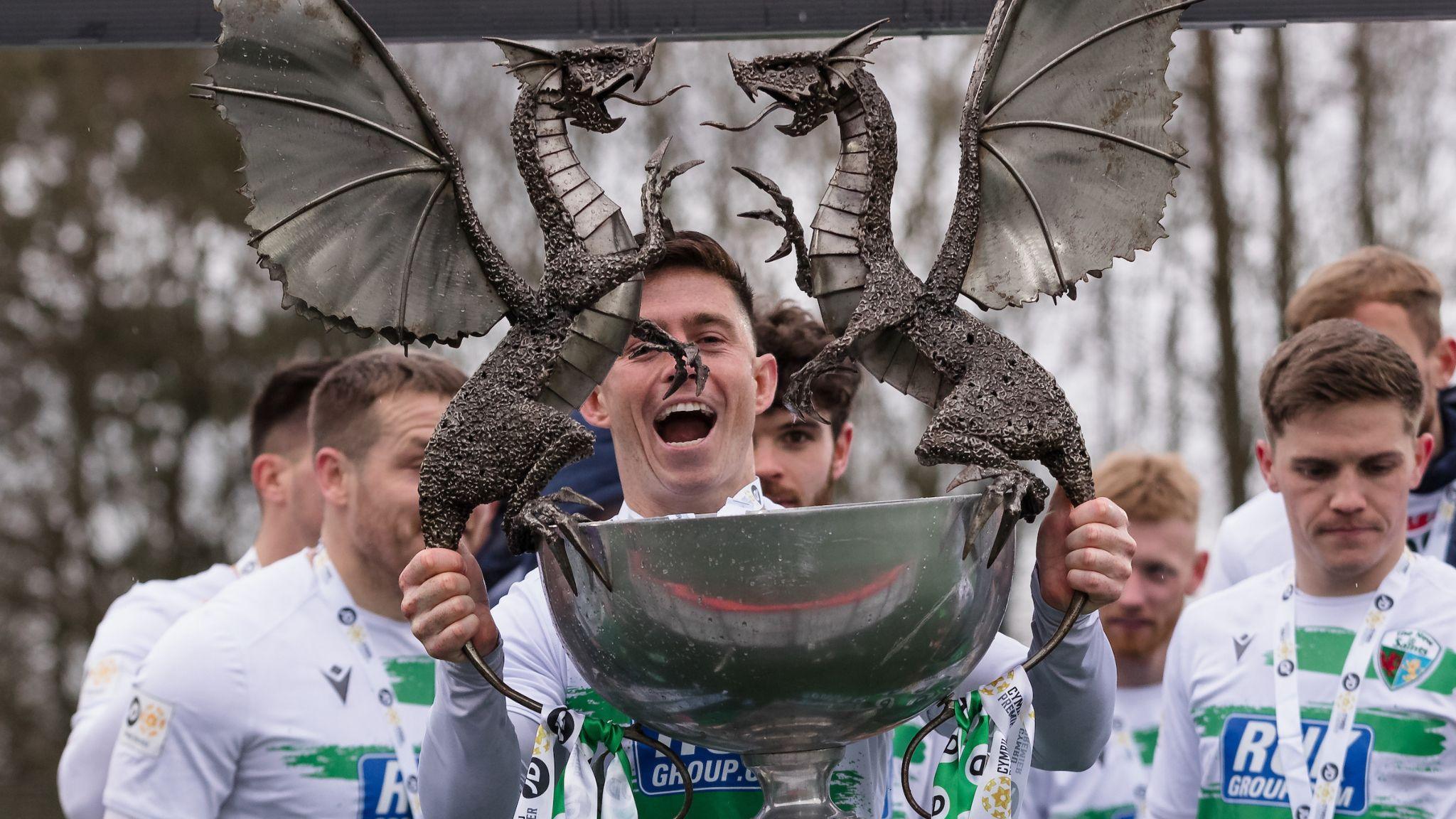Expansion and VAR planned in Cymru Premier revamp

The League of Wales was launched in 1992 and rebranded as the Cymru Premier in 2019
- Published
Welsh football’s Cymru Premier is set to welcome more clubs, Friday night games and the introduction of video assistant refereeing (VAR) as part of the biggest shake-up in the competition’s history.
Clubs were told of the plans by Football Association of Wales (FAW) officials this week.
There could be further changes in Welsh football's top division, with a new format due to be revealed later in the year.
It is understood that could see at least the first half of the season played on a regionalised basis, while the season may move to an earlier start in the calendar.
An independent panel will present its findings to clubs by September, but a number of plans have already been announced and given the green light by FAW bosses.
They include an increase in the number of teams from the current 12, although the exact number will be finalised when details of the format are provided.

Champions The New Saints completed a historic unbeaten Cymru Premier season in 2023-24, taking 92 points from a possible 96
A scaled-down version of video assistant refereeing – VAR Lite – has been given the go-ahead and will be introduced when facilities are in place.
The default fixture slot will move from Saturday afternoons to Friday evenings next season in an attempt to avoid competing with the Premier League and EFL for supporters and screen time.
Friday night games will increase in number over the coming campaigns before becoming standard by 2026.
That was the target date given for the raft of proposed changes in a six-year strategy outlined to club officials by the FAW’s head of domestic football Jack Sharp.
The new measures come after it was announced in February the Cymru Premier would be boosted by £6m worth of funding, the biggest investment since its inception in 1992.
Around £1m will be put into new marketing strategies, while the league says it is keen to explore the possibility of new and additional broadcasting coverage.
Cymru Premier's need for change - and some love
- Published24 April 2024
Should grassroots football in Wales be a summer sport?
- Published11 April 2024
Aber survive and Bay go down as TNS stay unbeaten
- Published21 April 2024
Clubs will be given funding over three years to help support development, including a grant programme for full-time roles such as general managers.
Elite club development managers will be provided by the FAW with the aim of helping clubs to modernise and professionalise.
About £1m is also being set aside for facility development.
The changes follow a two-year consultation period with clubs and stakeholders, with FAW chief executive Noel Mooney saying the league needed “a bit of love”.
Other measures include using a ‘work experience’ loophole to allow clubs to sign scholars on loan from Welsh EFL clubs outside the usual transfer windows, bringing in minimum 'athlete contact time' that means players would have to train with their clubs at least twice a week, and following the English Premier League by swapping reserve-team football for an under-23 style competition.
Clubs who qualify for Europe would also be supported under the plans, with the FAW helping to arrange warm-up fixtures and provide assistance with logistics.